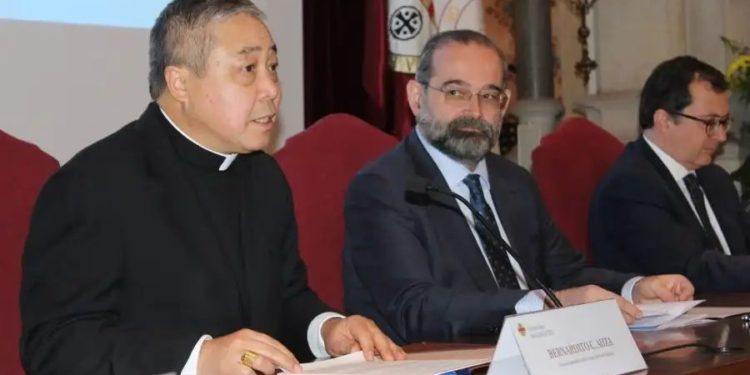Controversial concepts
Archbishop Auza pointed out that “although the Holy See agrees with most of the objectives and goals listed in the agenda,” in accordance with its “nature and particular mission” it has made clarifications and made reservations about some concepts.
These are mainly those referring to man, his nature and dignity, sexuality, the right to life, the family and the importance of the foundations of international law in the interpretation and implementation of Agenda 2030.
To illustrate it, the prelate addressed some relevant issues such as the concept of gender, the idea of empowerment and the so-called right to sexual and reproductive health.
Gender
Auza recalled that there is an “old debate” on the use of the term “gender” that goes back to the Conference on Development held in Cairo in 1994 and the Conference on Women in 1995 that took place in Beijing.
The nuncio explained that in its note expressing its reservations, the Holy See “emphasizes that any reference to gender, gender equality, and the empowerment of women and girls is understood according to the generally accepted common use of the word gender based on biological criteria.”
Empowerment
The nuncio also explained that “by using the term promotion instead of empowerment, the Holy See seeks to avoid a disordered vision of authority as power instead of service.”
The apostolic nuncio in Spain, who was the representative of the Holy See to the U.N. for seven and a half years, explained that the term empowerment has only been used since the 1990s.
Right to reproductive and sexual health
(Story continues below)
Auza acknowledges that the term sexual and reproductive health “is one of the most controversial because it implies abortion.”
This was used for the first time in 1995 at the Women’s Summit in Beijing. There, the prelate recalled, “there was a great struggle between the Holy See” especially with the United States, whose delegation was headed by Hillary Clinton.
The term was introduced in the final document, but with an interpretation that “thanks to the support of many other countries” could remain in the document and which Auza noted “does not imply abortion.”
This consideration is reflected in the text of the agreement and “is not an interpretation,” the nuncio pointed out.
“It does not include the right to abortion and even less abortion as a fundamental right,” the archbishop said and then “emphasized that no United Nations document has ever mentioned abortion as a right.”
What happens, he argued, is that many countries and U.N. agencies like the World Health Organization and UNICEF do take it this way.
Credit: Source link




